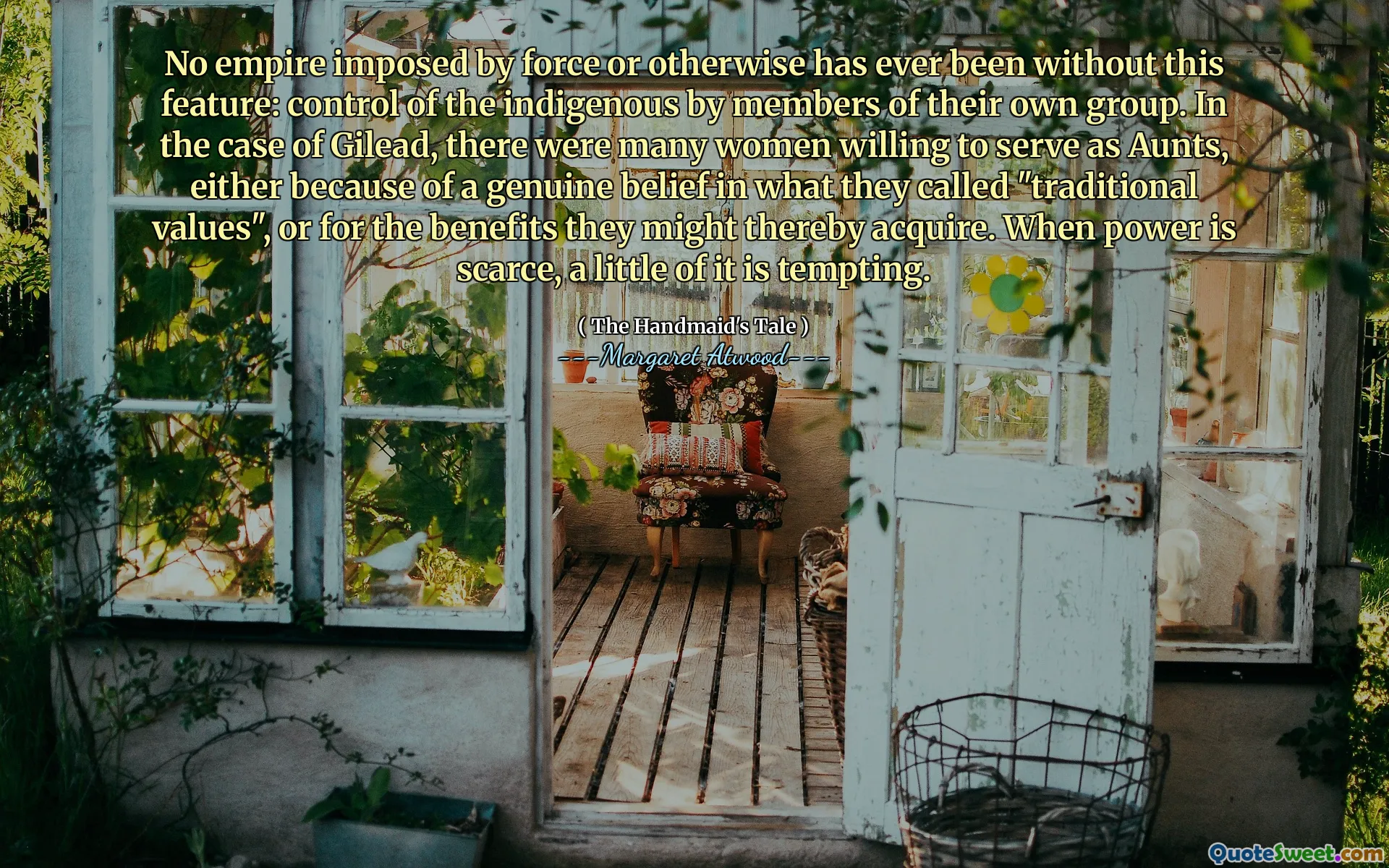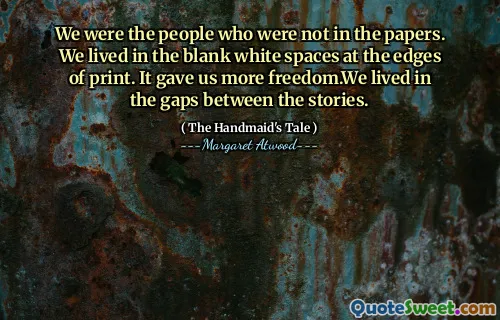
No empire imposed by force or otherwise has ever been without this feature: control of the indigenous by members of their own group. In the case of Gilead, there were many women willing to serve as Aunts, either because of a genuine belief in what they called "traditional values", or for the benefits they might thereby acquire. When power is scarce, a little of it is tempting.
In "The Handmaid's Tale," Margaret Atwood explores the dynamics of power and control within the oppressive regime of Gilead. The narrative highlights a significant aspect of many empires, where domination is often maintained through the complicity of those belonging to the subjugated group. In Gilead, women known as Aunts are complicit in enforcing the state's oppressive rules, either due to their genuine belief in the regime's values or the incentives that come with their participation.
This participation reflects the idea that when opportunities for power are limited, even a small amount can become highly appealing. The Aunts' roles illustrate how some individuals may collaborate with oppressive systems to gain status or security, thus perpetuating the cycle of control over their peers. Atwood's portrayal serves as a commentary on how the subdued can become agents of their own oppression, underscoring the complexities of power dynamics in oppressive societies.






